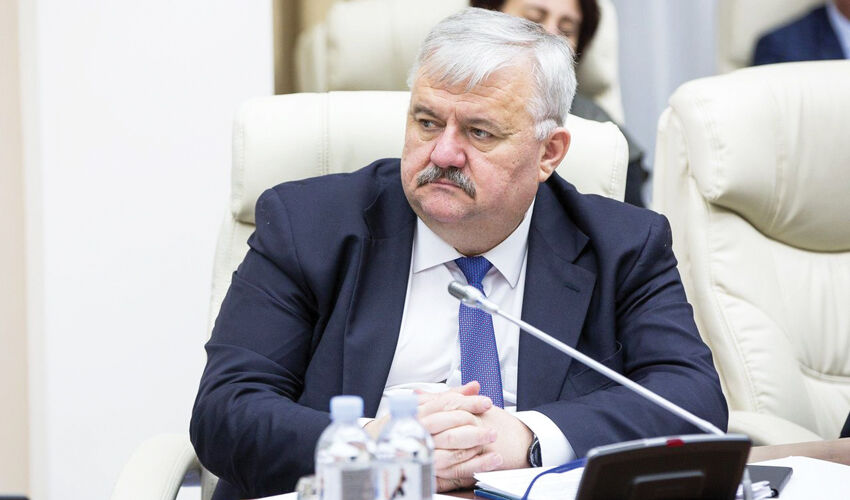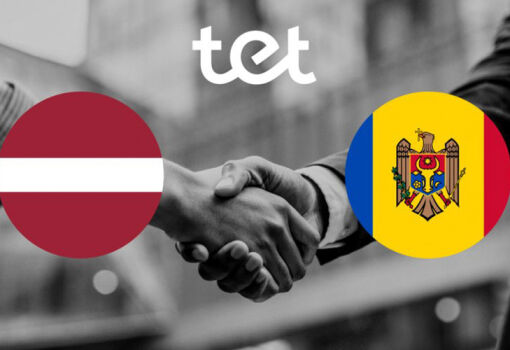
Igor Sharov
This topic was voiced in the new podcast “The Importance of Money” and set the tone for the whole discussion: financial literacy today is not a fashionable word, but a condition for survival and development of both an individual and the state.
Igor Sharov, Rector of the State University of Moldova, responded with an even more down-to-earth image: “Never keep everything in one basket. Any amount put aside today is an investment in tomorrow. That’s what my parents taught me, and it still works today. Even Benjamin Franklin said: every penny saved is possible as an investment.”
The conversation began with the question of whether young people are ready for life in the world of money. Anca Dragoo put it bluntly: “The Central Bank has a moral obligation to be there for young people. In addition to price stability and supervision of banks, we have an obligation to educate. And we are doing that. In Europe, many central banks have entire departments for financial literacy, and we should follow the same path”.
Igor Sharov named figures showing real changes: “At the end of last year, 445 schools participated in financial education programs. More than 34 thousand students and over 450 teachers. These figures speak for themselves. And even if the discipline remains optional, the interest is huge. At the university, we opened optional courses for all faculties, and we had three large groups – hundreds of students. They are not only economists, but also lawyers and philologists. They realize that without this knowledge it is impossible nowadays.”
An example is the project “Școala Finanțelor Moderne” (“School of Modern Finance”), implemented jointly by the National Banks of Moldova and Romania. “The students spent nine days immersing themselves in the modern financial system,” said Igor Sharov. – They visited the National Bank of Romania, the Academy of Economic Knowledge, visited cultural sites like the Peleş Castle or the fortress in Suceava. But the main thing is that they learned to speak about finance in their own language. After all, it is young people who can best convey such topics to their peers”.
Anca Dragu added: “We invited not only economists but also future journalists to participate. After all, it is they who will explain to the public what the National Bank does, why we make certain decisions. If they understand how the interest rate works, they will be able to properly convey this to people. And we saw that the interest was enormous. Students were enthusiastic, they asked about investments, about where to invest money today and in ten years. We even held a simulation of a monetary policy meeting with them. And they repeated the real procedure. I told them: “In twenty years, I am waiting for you at this table, already real members of the NBM Board”.
The conversation in the studio was not only about projects, but also about historical lessons. Igor Sharov admitted: “I belong to the generation that entered adulthood in 1991, the year of independence. And we had no elementary knowledge of finance: we learned from our own mistakes. We lost our savings in 1992. We saw people lose everything again in 1998. We witnessed financial pyramids like MMM, which destroyed the fates of thousands of people. Today, young people can avoid these dramas, but they need knowledge.
Developing the topic, Anca Dragoo emphasized: “Financial inclusion is impossible without financial literacy. You cannot open an account or take a loan if you don’t understand what it means. That is why we have developed a strategy together with international partners, including the World Bank. We will measure progress by indicators: the number of open accounts, deposits, loans. We know that access to financial services is worse in rural areas. And that is where the knowledge should come.”
The conversation emphasized that financial literacy is not just a discipline at school. “It starts at home,” said Anca Dragoo. – Even from pocket money a child can learn to save one or two lei. Even a simple piggy bank is the first step to understanding the value of money. And we, adults, are obliged to set an example”.
The studio gave examples from other countries. “Twenty years ago in American kindergartens children were explained to children what inflation is. Of course, not in those terms, but they showed why prices were rising. If we had done it earlier, our citizens could have avoided many mistakes,” said the NBM president.
Igor Sharov extended the perspective to the world history: “Let’s remember the crisis of 1929-1933 in the USA. People had no financial skills and it became a disaster. Germany after 1945, thanks to discipline and new knowledge, built a new economic miracle. Singapore and Japan did the same in the 1960s. And we have a post-Soviet trauma: people got used to keeping their money in the bank, and in 1992 they lost everything. It’s a drama that has undermined trust in the system. We can only get out of this circle through education.
Anca Dragoo paid special attention to risks. “Today, information spreads too fast. And if something sounds too good to be true, then it is not true. We have to educate critical thinking. Financial literacy is not just about budgets and interest rates, it is about asking the question: why is it like this and what is behind it?”
Podcast host Vitalie Gutsu invited participants to formulate an SMS for all young people in the country. Anca Dragu said: “Learn. Every extra year of education is access to a better job and a better life. And be careful with money.” Igor Sharov added: “Never keep your eggs in one basket. Any banuts saved can be invested tomorrow.”
These simple words proved to be the quintessence of the conversation, which included numbers, historical examples, and strategic plans. Another podcast “The Value of Money” showed that financial literacy in Moldova is gradually turning into a national priority. Behind it are not only numbers – 445 schools, 34 thousand pupils, hundreds of teachers and students involved in projects – but also the desire to form a new generation of citizens who know how to manage money and build a future without fear of crises.
Podcast video: https://shorturl.at/GluVf
Economic Press Club



